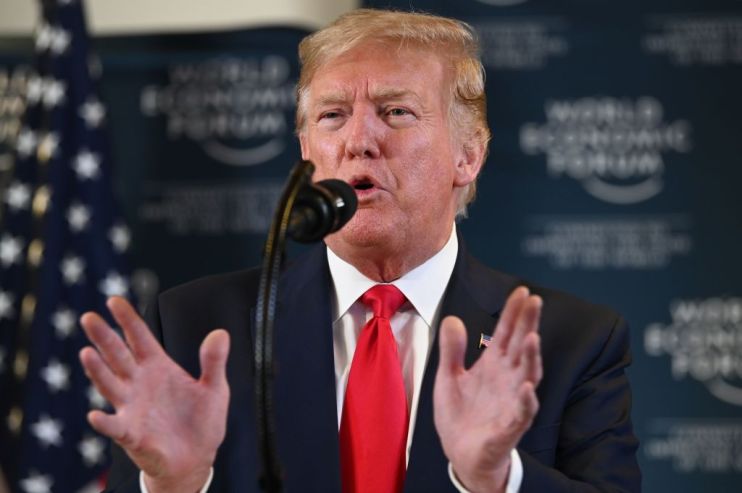The world has changed, but Davos has failed to keep up

As the fiftieth World Economic Forum’s annual Davos meet-up continues, “grounded” British ministers are, according to Boris Johnson, focusing on priorities at home — or forging stronger relationships with African states at the UK-Africa Investment Summit.
It’s a shrewd move, not only because of the way it looks in the press for the Prime Minister’s new “People’s Government”, but also because Davos is losing its significance in a changing global order, and is endemic of the worst excesses of liberal world leaders.
It seems ridiculous to look at Davos and see government ministers from around the world quaffing champagne alongside chief executives and — according to Bloomberg — over 100 billionaires who have paid upwards of $600,000 for the privilege of seething about Donald Trump’s speech.
Of course, global summits are pivotal for building diplomatic relationships and bringing together key individuals to devise policy solutions to the challenges facing the international economy. This year, Davos has been primarily focused on climate change (aside from the private jets) — a positive step, which suggests that concerns raised through 2019’s environmental protests are at least being heard.
But around the world, 2019 saw protests of all shapes and sizes — on issues ranging from democratic reform in Asia to inequality in South America, transparency, human rights, and the accountability of corporate giants. The opaque, pay-for-access nature of Davos represents the very drivers of those protests.
The World Economic Forum paints itself as an opportunity for activists and upwards-punchers to “speak truth to the powerful”. But the fact is that protesters are finding their own ways to do this every day, using social media from their phones rather than flying to Switzerland once a year. If Davos ever was the forum for elites to listen (a dubious claim by all accounts), it certainly is no longer.
Because the world is changing, and liberal leaders are being too slow to adapt to new realities.
China is increasingly acting as an ideological alternative to liberal democracies, rather than just an economic powerhouse.
Developing countries across Asia resent the hypocrisy of western European nations who burned fossil fuels to grow, and now want to clamp down on them doing the same.
The US seems intent on withdrawing from the global community to focus on its issues at home.
And by 2050, one in four global consumers will be African.
With the global economic order shifting, Davos feels like a hangover from another age. It hasn’t adapted either its priorities or its structure to reflect how much has changed in half a century.
For the UK, choosing to forgo the ski slopes and instead to focus on establishing stronger relations with African states, for example, makes complete sense.
This isn’t about stepping back. Britain is more than capable of acting as a convener on the issues that matter without requiring attendees at diplomatic summits to pay over half a million dollars.
Yes, we need global cooperation to confront some of the biggest challenges of our age, such as climate change, inequality, and population growth. And it’s right for world leaders to engage with the business community to tackle these issues. But they need to do so in a more transparent way.
After 50 years of back-room meetings with world leaders and chief executives, with pay-to-play billionaires getting privileged access to policymakers, maybe it’s time to call quits on Davos.
Main image credit: Getty